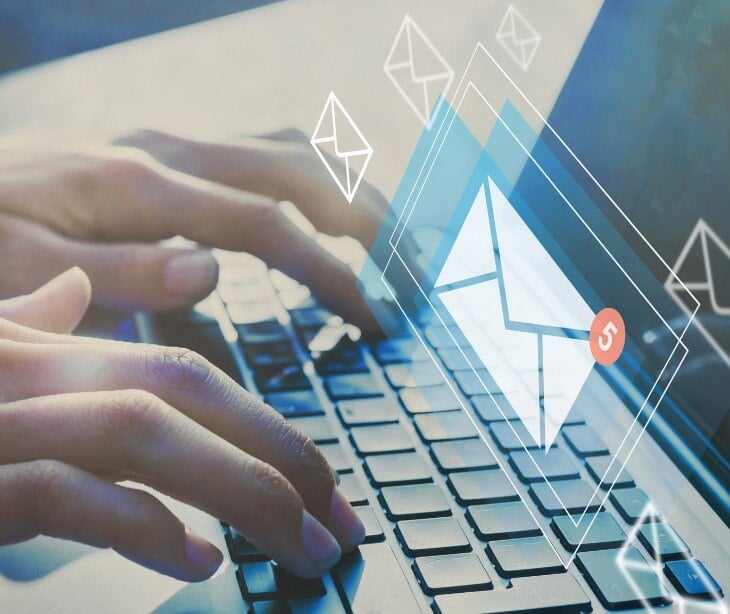
Experts say that “email is one of the most prevalent and convenient forms of communication. GPs and general practices often receive requests from patients, other clinicians and third parties to send health information via email,” but “mistaken data is one of the more common causes of human error in HIPAA violations,” says Vertical.
When two patients share the same name and/or birthday, healthcare information can get mixed up and sent to the wrong patient. This is an example of a human error that can result in a breach of patient privacy.
Human errors in healthcare
A study titled Human Factors in Electronic Health Records Cybersecurity Breach: An Exploratory Analysis titled Human Factors in Electronic Health Records Cybersecurity Breach: An Exploratory Analysis, looked at human factors in electronic health records (EHR) cybersecurity breaches found that the “vast majority of health records were compromised due to poor human security.” This suggests that human error and inadequate employee training are the root causes of cybersecurity breaches.
Human security flaws often stem from a lack of awareness about potential threats and insufficient adherence to best practices for handling sensitive information. Effective staff training and strict enforcement of security policies can mitigate these risks and protect health records.
See also: What is cybersecurity in healthcare?
Common human errors in email communication
Human errors in email communication in healthcare often lead to significant security breaches and compromise patient privacy. Common mistakes include sending protected health information (PHI) to the wrong recipients due to mistyped email addresses, failing to use encryption for emails containing sensitive information, and including confidential details in email subject lines that are not encrypted. Additionally, healthcare employees might inadvertently fall for phishing scams, exposing their login credentials and granting unauthorized access to PHI. Using personal or unsecured devices to send emails also poses a substantial risk. These errors demonstrate the need for comprehensive staff training and stringent adherence to security protocols to ensure HIPAA compliance and safeguard patient data.
Learn more: HIPAA Compliant Email: The Definitive Guide
Staff training to ensure HIPAA compliant email communication
Understanding HIPAA regulations
Training ensures that staff understand HIPAA regulations, specifically the Privacy Rule and Security Rule, which govern the handling of PHI. Staff must know the legal implications of non-compliance and the importance of protecting patient information.
See also: Understanding and implementing HIPAA rules
Recognizing PHI
Employees need to be able to identify what constitutes PHI. Training helps them recognize different types of information that need protection, such as names, addresses, social security numbers, medical records, and any other personal health information.
Using secure communication channels
Training teaches staff to use only approved, secure email systems for transmitting PHI. This includes understanding the importance of encryption and how to ensure that emails are sent through encrypted channels.
Go deeper: Top HIPAA compliant email services
Implementing access controls
Staff are trained to implement and maintain proper access controls, ensuring that only authorized personnel have access to PHI. This includes understanding role-based access, password management, and keeping sensitive information confidential.
Identifying and reporting security incidents
Training programs educate staff on how to identify potential security breaches or suspicious activities. Employees are taught the correct procedures for reporting such incidents promptly, which is crucial for mitigating risks and ensuring timely responses.
Proper use of email features
Staff must learn about the specific features and functionalities of their email systems that help maintain compliance, such as:
- Email encryption: Ensuring all emails containing PHI are encrypted.
- Automatic log-off: Ensuring that email accounts log off automatically after a period of inactivity.
- Email monitoring: Understanding that email communications may be monitored for compliance purposes.
Avoiding common pitfalls
Training addresses common mistakes that can lead to HIPAA violations, such as:
- Sending PHI to incorrect recipients due to mistyped email addresses.
- Including PHI in subject lines or attachments without proper encryption.
- Using personal or unsecure devices to access or send PHI.
Regular refresher courses
Continuous education through regular refresher courses ensures that staff stay updated with the latest HIPAA requirements, security threats, and best practices. This ongoing training reinforces the importance of compliance and keeps security awareness high.
Practical scenarios and simulations
Using practical scenarios and simulations during training helps staff apply what they've learned in real-world situations. This hands-on approach can improve their ability to handle PHI securely and respond appropriately to potential security threats.
Documentation and accountability
Training includes keeping records of all training sessions, materials, and staff participation. This documentation helps demonstrate compliance during audits and holds staff accountable for their understanding and adherence to HIPAA policies.
FAQs
What is HIPAA, and why is it important for email communication in healthcare?
HIPAA sets standards for protecting sensitive patient health information. It's important for email communication to ensure that PHI is transmitted securely to protect patient privacy and avoid legal penalties.
Go deeper: What is HIPAA?
What constitutes PHI in email communication?
PHI includes any information that can identify a patient, such as names, addresses, social security numbers, medical records, insurance information, and any other health-related data. Ensuring this information is protected in emails ensures compliance.
How often should refresher training be conducted for healthcare employees?
Refresher training should be conducted regularly, at least annually, and whenever there are updates to HIPAA regulations or organizational policies. Ongoing education helps keep staff up-to-date with the latest best practices and security threats.
Subscribe to Paubox Weekly
Every Friday we'll bring you the most important news from Paubox. Our aim is to make you smarter, faster.




